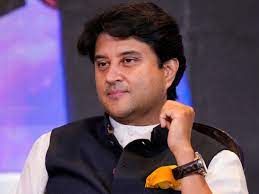Court needs to stop the rot
The criminalization of politics has been a plague for many years. The October 1993 report of the NN Vohra Committee raised red flags about it. The research came to the following conclusions: “Crime syndicates and mafia organizations have established themselves in various parts of the country on the basis of the extensive experience gained by our various intelligence, investigative and enforcement agencies.” As the recent actions of the Memon brothers and Dawood Ibrahim demonstrate, the various crime syndicates and mafia organizations have developed significant muscle and financial power and established links with governmental functionaries, political leaders, and others to be able to operate with impunity.

Two decades ago, a succession of rulings by the Delhi High Court and the Supreme Court forced candidates running for the Lok Sabha and assemblies to reveal their financial, educational, and criminal histories in a sworn affidavit. This led to public exposure. The Association for Democratic Reforms (ADR) submitted the relevant petitions. The organization gathered information from the 2004 Lok Sabha candidates’ affidavits and made it available to the public. Since then, it has done so for each and every legislative and assembly election.
It is important to consider the newly disclosed details of the candidates running in the first round of the 2024 Lok Sabha elections from this perspective. According to the data that is currently available, 252 (15.57%) of the 1,618 applicants whose affidavits were examined have stated that they are the subject of ongoing criminal prosecutions.
For comparisons, these details need to be looked at from two angles. First, this data should be compared with comparable data from previous elections. Secondly, it should be determined what type of MP these candidates would make if they were elected.
Between 12 and 19 percent of candidates in the Lok Sabha elections in 2004, 2009, 2014, and 2019 have criminal convictions against them. Given this, it is appropriate that 15.57 percent of these candidates are running in the current Lok Sabha elections’ first round. It is too close to 17% in 2014 and 19% in 2019 to show a discernible decline in the percentage of candidates facing criminal charges. Furthermore, the proportion may increase overall since this data only covers the first phase.
Converting candidates with criminal histories into Members of Parliament with such histories is the other analogy. Compared to candidates facing criminal charges, a larger proportion of elected members of parliament have criminal proceedings against them. This demonstrates that there are undoubtedly more corrupt MPs than 15.57 percent. This claim is entirely supported by the evidence. It is by no means my intention for the proportion of MPs with criminal charges to exceed or equal 43%.
Now let’s talk about why this occurs. This is the result of reckless actions by different political groups. Parties decide to distribute tickets to people with criminal records because they believe these people are electable. Others argue that they must follow suit because one side takes this action.
The Supreme Court has been hearing the case. In some instances, the court has expressed strong support, stating that if a party issues a ticket to an individual who has outstanding criminal convictions, it must provide a justification for the decision and explain why it was unable to locate an individual who is free of outstanding cases. Parties must also release advertising stating their motivations. The parties have merely ostentatiously followed these instructions, completely disregarding the spirit of the ruling.
Activists have returned to the highest court, arguing that the parties have not been appropriately adhering to the instructions. The court has even fined some parties for breaking the rules of the legislation that it has established. However, this has had little effect on the parties, who are still free to issue tickets to anyone who has outstanding criminal charges against them.
The Supreme Court has received pleas pleading that those who have criminal cases pending against them, where the maximum sentence is two years in prison; where the cases were filed at least six months before the election date; and where the charges were framed by a court of law, should not be permitted to run for office. The court, however, has not been eager to take such action since it would essentially be creating a law, which is not the responsibility of the judiciary.
The court has been informed that the judiciary has the responsibility of filling in any gaps or defects in the law until the legislature corrects them, provided that the legislature lacks the time or desire to do so.
In doing so, the court has addressed legal gaps on many occasions and in two instances in matters brought before the ADR: in 2002 and most recently in the matter concerning the appointment of the chief election commissioner and election commissioners.
Until the Supreme Court takes the necessary step or until we, the people, decide to make it happen via mass public action, the threat of criminalizing politics will not go away.







